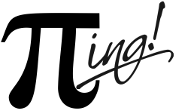 |
PING
0.9
Statistical data handling and processing in production environment
|
 |
PING
0.9
Statistical data handling and processing in production environment
|
Slice a list, i.e. extract a sequence of items from the beginning and/or ending positionsand/or matching items.
clist : a list of formatted (e.g., comma-separated quote-enhanced) strings;beg : (option) item to look for in the input list; the slicing will 'begin' from the first occurrence of beg (with quotes); if not found, an empty list is returned;end : (option) ibid, the slicing will 'end' at the first occurrence of end; if not found, the slicing is done till the last item;ibeg : (option) position of the first item to look for in the input list; must be a numeric value >0; if the value is > length of the input list, an empty list is returned; incompatible with beg option (see above); if neither beg nor ibeg is passed, ibeg is set to 1;iend : (option) ibid, position of the last item; must be a numeric value >0; in the case iend<iend, an empty list is returned; in the case, iend=ibeg then the item beg (in position ibeg) is returned; incompatible with end option (see above); if neither end nor iend is passed, iend is set to the length of list;mark, sep : (option) characters/strings used respectively as a "quote" and a separator in the input list; default: mark=str(%"), and" sep=%quote(,), i.e. the input clist is a comma-separated list of quote-enhanced items; see %clist_unquote for further details.res : output list defined as the sequence of items extract from the input list list from the ibeg-th position or the first occurrence of beg, till the iend-th position or the first occurrence of end (after the ibeg-th position).
returns: res=("bb","ccc"), while
return respectively: res=("bb","ccc","dddd","bb","fffff"), res2=("bb","ccc","dddd") and res3=("ccc").
Run macro %_example_clist_slice for more examples.
beg and end shall be passed without the quotes ".end is necessarily searched for in list after the ibeg-th position (or first occurrence of beg).iend (or first occurrence of end) is not inserted in the output res list.res= instead of () when there is no match.$ appears somewhere in the list. If you need to use $, you can reset the global macro variable G_PING_UNLIKELY_CHAR (see _setup_ file) to another dumb (unlikely) character of your own.